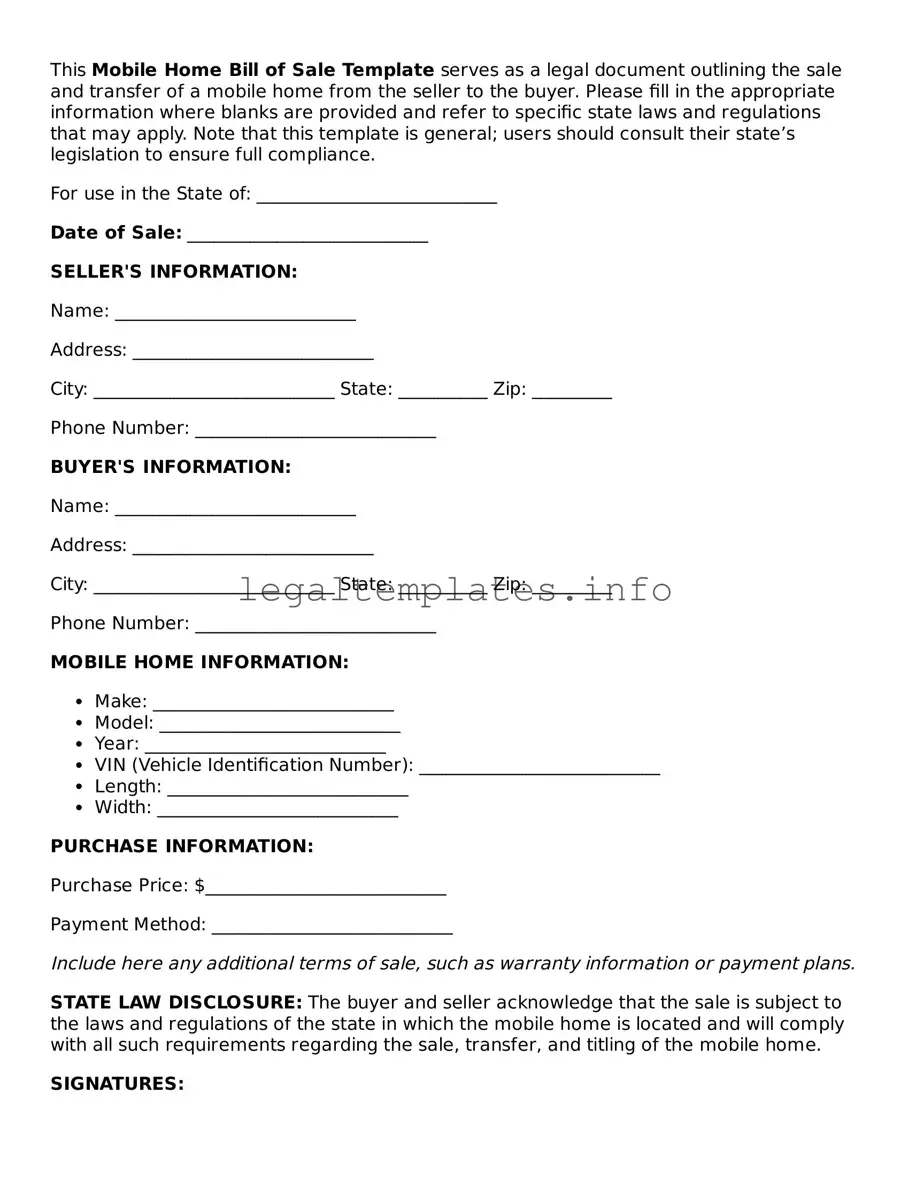Fillable Mobile Home Bill of Sale Document
A Mobile Home Bill of Sale form is a critical document used to record the sale of a mobile home from one party to another, serving as proof of purchase and ownership transfer. It typically outlines the specifics of the mobile home, including make, model, year, and serial number, along with the sale price and terms agreed upon by both buyer and seller. To ensure the legal transfer of ownership and protect all parties involved, filling out this form accurately is essential. Click the button below to get started on completing your form.
Access Mobile Home Bill of Sale Online

Fillable Mobile Home Bill of Sale Document
Access Mobile Home Bill of Sale Online

Access Mobile Home Bill of Sale Online
or
Click for PDF Form
This form won’t take long
Edit, save, and complete Mobile Home Bill of Sale online.